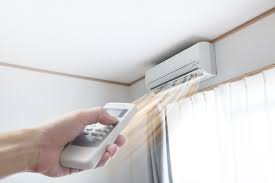03/01/2026

Why do Air Conditioners explode? How can we prevent them?
Shamiur Rahman Lipu | Published: 2020-09-05 23:05:47

Bangladesh witnessed apparently the deadliest blast from Air Conditioner at a mosque in Fatullah of Narayanganj on Friday night that left 16 people dead so far.
Although AC blast appeared to be a common scenario with a few casualties in the country, no such disastrous blast was reported here in the last few decades.
In Friday night's incident, around 40 people suffered burn injuries. Of them, a total of 37 injured were taken to the Sheikh Hasina National Institute of Burn and Plastic Surgery in Dhaka.
One of the injured succumbed to his injuries on his way to Dhaka in the night while the rest 15 died at the burn institute in the early hours of Saturday.
Most of the injured reportedly suffered over 70 percent burn injuries.
To avoid such incidents, now is the time to give an eye to the root causes behind AC explosion.
In most cases, the blasts stem from compressor failure in the air conditioner.
According to US based heating, cooling and refrigeration company Aristair, taking good care of the air conditioners can help the users be safe from explosion.
The company pointed out some basic reasons behind explosions and suggested having the air conditioning system serviced at least twice a year.
Dirty coils
When dust, grime and mineral scales build up on the condenser coil, the air conditioner can’t expel enough heat from the system and it’s forced to run constantly trying to cool the space. The increased pressure and temperature can cause the compressor to overheat and fail.
Blocked suction lines
When air conditioner’s refrigerant lines become blocked or damaged, the first thing to be noticed is that the unit is not cooling as effectively. If the problem is not fixed, once again the increased pressure and temperature cause overheating and AC compressor failure.
Low refrigerant charge
If the system’s refrigerant lines develop holes or cracks, the air conditioner leaks refrigerant. After a while, the level becomes so low that the compressor has to work harder to pump enough refrigerant through the system to cool the space. The strain can eventually cause the compressor to break down.
Incorrect suction line size
If the refrigerant line develops leaks and needs to be replaced, hiring an experienced AC technician is very important as a line that’s too large or too small for the system can cause premature AC compressor failure.
Too much refrigerant
If a less-than-qualified person works on the air conditioner and inadvertently adds too much refrigerant, or even the wrong type of refrigerant, it can be a deadly mistake for the compressor.
Electrical problems
An electrical failure can result in a buildup of acids that cause a great deal of damage to other parts in addition to the compressor. If one has a failed compressor, he or she should make sure the technician tests for the presence of these acids. If those are found there, an electrical burnout has caused damage throughout the system that is probably not worth fixing.
But electrical problems are often easily preventable when an experienced tech inspects the system. He can spot and repair damaged wiring, fuses and contractors before they take down the system and cause AC compressor failure.
Contaminants in the system
The high heat and pressure in an air conditioning system can introduce any number of contaminants that can cause damage. These include air, moisture, dirt, debris, leaves, soot, acids, and even bird and pest droppings.
Inadequate oil lubricant
The air conditioner’s oil lubricant is like the blood in human body. If there’s not enough lubricant, the system can’t work properly and all kinds of problems can result, including AC compressor failure.
When the system is regularly maintained by a trained AC professional, he will check the lubricant levels and the condition of the oil pump to prevent this problem.
Editor & Publisher : Md. Motiur Rahman
Pritam-Zaman Tower, Level 03, Suite No: 401/A, 37/2 Bir Protik Gazi Dastagir Road, Purana Palton, Dhaka-1000
Cell : (+88) 01706 666 716, (+88) 01711 145 898, Phone: +88 02-41051180-81